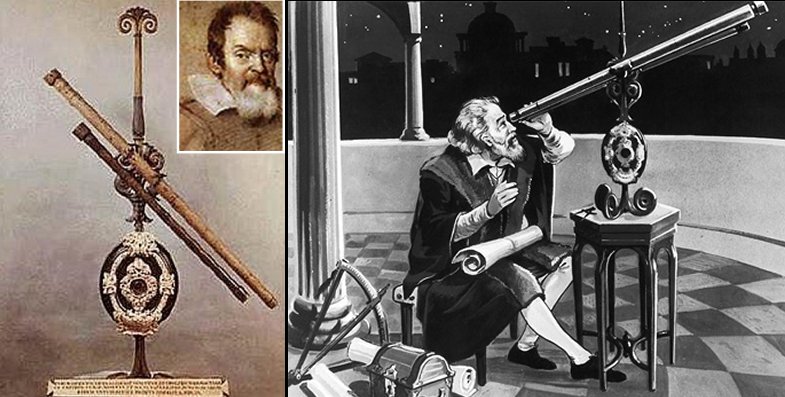If you like reading about philosophy, here’s a free, weekly newsletter with articles just like this one: Send it to me!
The noblemen of Venice
Are telescopes born? Do they have birthdays? Certainly, there is a sense in which an instrument can come to life: when people look through it, use it, measure their world with it. When the members of the Senate of Venice lined up behind that middle-aged professor on that evening of August 25, 1609, eager to see the distances in front of their eyes shrink to nothing as if by magic, they were bringing a new thing to life: a concept, a tool, a new understanding of the stars, but also a weapon.
We have a record of that demonstration. How the nobles slowly scaled the bell tower of St Mark’s, finally standing at the top, the view open to the four directions of the compass. How Galileo pointed the telescope first to Padua, thirty-five miles away, so that all could see that city’s church towers. Then to Murano, where one could see little figures entering the church of San Giacomo. They turned the telescope to the sea and saw ships that would be invisible to the naked eye for another two hours. [1]
It is interesting that the first public presentation of the new technology wasn’t to the public, or to Galileo’s colleagues, to the other scientists. He first went straight to the politicians in the Senate. He was rewarded: they arranged a new professorship in Padua for him and a handsome yearly pension.
Image from a fresco by Giuseppe Bertini (1825–1898). Public domain.
Galileo didn’t invent the telescope, but, in a suicidal move typical for an absent-minded scientist, he had the idea to turn it toward the night sky. One can hear the Venetian nobles groan across the centuries:
Here is this professor who created the perfect tactical weapon: an instrument that can see in the far distance without being seen. Enemy ships! Approaching armies! We can spy on our enemies. From every church tower, we can see into the offices of lawyers and politicians and read their lips through glass. We can read their most secret documents, left lying on tables close to the windows. We can see exactly who walked through the church door in Padua today, without even being there! Surveillance! We can follow any citizen on his way through town, lip-read every conversation, see his every gesture, just by standing up here, pointing this magic metal tube at the distant figures. And what does the professor talk about? For goodness sake: all that he wants is to turn the thing away from everything interesting and look at the birds, the clouds and the stars… And, of course, God, who’s also somewhere up there, invisible like a distant ship on the Adriatic sea. Will we also see Him through that thing? And what good will that do us?
Read the full article which is published on Daily Philosophy (external link)





